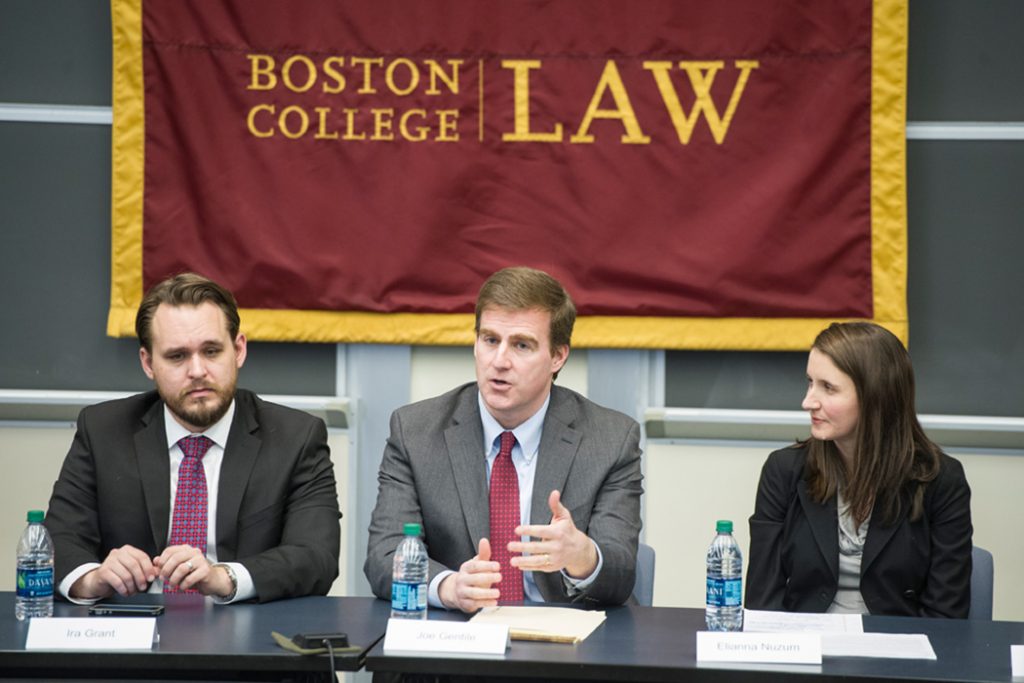They’re strange bedfellows, and they all came together at the Law School on March 12 for the panel discussion, “Collaborating Against Wrongful Convictions.”
Exoneration of the wrongfully convicted, like Dennis Maher, has disturbingly turned on serendipity and the goodwill of volunteers. Massachusetts took steps toward remedying that with the passage of a 2012 statute, Post-Conviction Access to Forensic and Scientific Analysis (Chapter 278A). It’s a boon for justice—but it’s an unfunded mandate.
Grants from the National Institute of Justice (NIJ), a subsidiary of the US Department of Justice, has allowed a diverse constituency to come together and work toward the statute’s implementation. Called the Massachusetts Post-Conviction DNA Testing Assistance Program Working Group, it consists of public defenders (Committee for Public Assistance Services Innocence Program), public interest lawyers (the New England Innocence Project), prosecutors (the Middlesex District Attorney’s Office and the Suffolk District Attorney’s Office), courts (the Middlesex Superior Court Clerk’s Office and the Suffolk Superior Clerk’s Office), and police (the Massachusetts State Police Crime Lab, the Boston Police Crime Lab). They have been working together to identify cases with viable post-conviction innocence claims and conduct DNA testing when possible.
They are also working to improve systems for storing and preserving criminal evidence after convictions. Panelists told stories of evidence stowed in sketchy courthouse cellars and poorly resourced police stations, of bloody shirts displayed to juries on poster board, stuffed into plastic bags, and left to degrade in storage, of drug evidence mishandled at trial by order of a judge, and of murder weapons touched by the gloveless hands of jurors. Thanks to the NIJ grant, the group is assembling a best practices manual for inventorying, tracking, and storing evidence for future DNA innocence cases, and Middlesex and Suffolk counties are preparing inventories of their evidence and starting the preservation process. Without legislative funding, however, panelists worried about the future of their efforts.
The panel was moderated by Professor Sharon Beckman, director of the BC Law Innocence Program, and by students Jennifer Flynn, Jennifer Henricks, and Lauren Robbins.
Photograph by Charlotte Parish, MTS, BC


